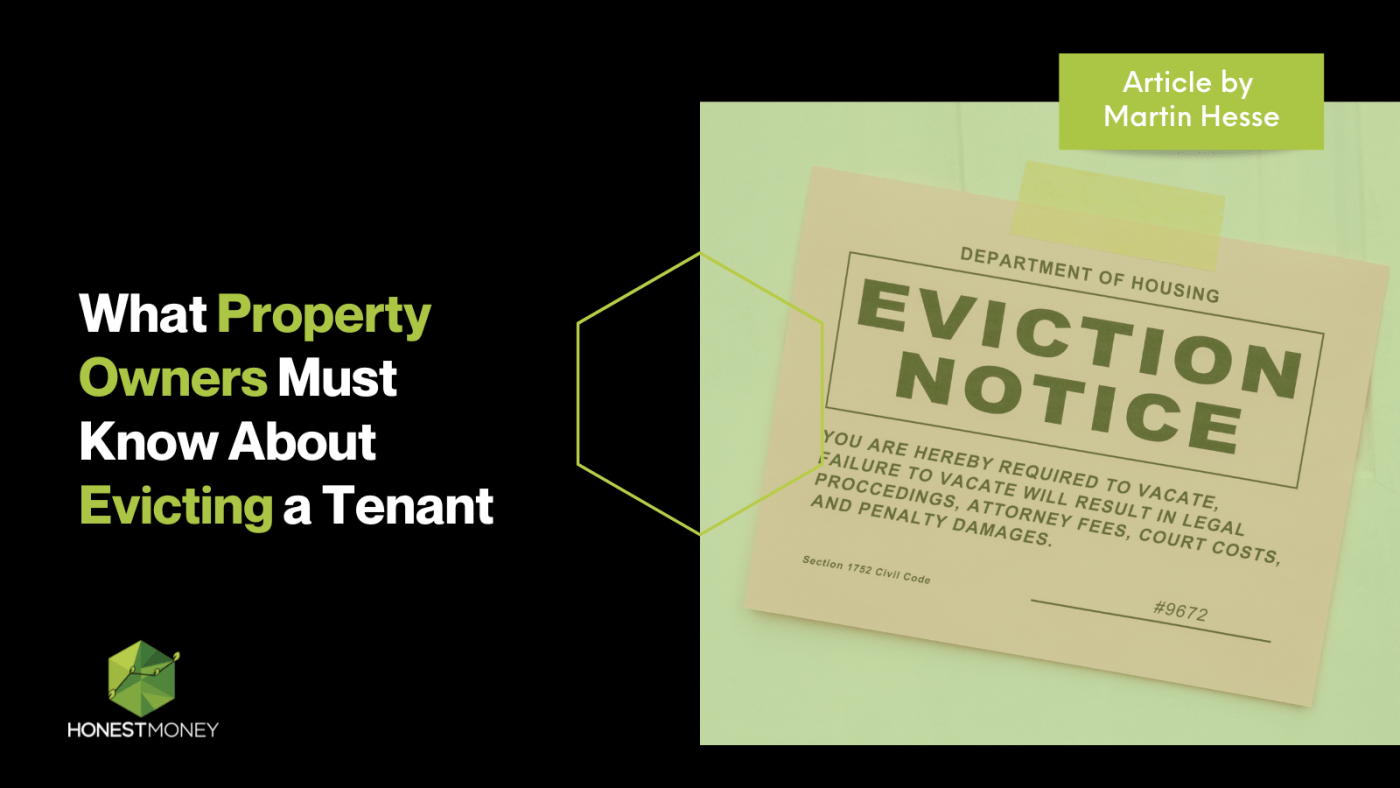What Property Owners Must Know About Evicting a Tenant

Landlords must follow a set legal process to evict a tenant from a residential property in South Africa, and even then there is a chance that the action will fail at the first attempt. If you own a rental property or if you are planning to invest in one, you need to know exactly what is involved.
The laws governing eviction are grounded in principles enshrined in our post-1994 Constitution and must be seen in the context of the inhumane mass evictions and relocations of people on a racial basis under apartheid.
Simon Dippenaar, Managing Attorney at SD Law in Cape Town, who has written a user-friendly guide for landlords on the firm’s website, says that unopposed evictions typically take three to six months, whereas opposed evictions can take up to 18 months or longer.
“Eviction law serves to protect both property rights and human dignity. Landlords are entitled to safeguard their investments, while tenants deserve fairness and due process. South African law balances these interests through the Constitution, the Prevention of Illegal Eviction from and Unlawful Occupation of Land Act, and the Rental Housing Act,” Dippenaar says.
The Bill of Rights, in Chapter 2 of the Constitution, guarantees all South Africans basic human rights, including the right to equality, human dignity and privacy. Section 26 grants everyone the right to access to adequate housing, and states that no one may be evicted from their home or have their house demolished without an order of court.
The law applying to evictions
Dippenaar outlines the two key pieces of legislation pertinent to landlords:
• The Prevention of Illegal Eviction from and Unlawful Occupation of Land Act, 1998 (PIE). “This Act defines ‘unlawful occupiers’ (someone occupying land without consent or legal right) and lays out the standard eviction procedure, including the mandatory eviction notice, which leads to a court hearing. Where there is a risk of harm or criminal behaviour, an urgent eviction can be granted. There is a difference in the treatment of tenancies of less than six months and more than six months. In both cases, the court weighs all factors, but in longer periods of occupation the court will also consider the availability of alternative accommodation,” Dippenaar says.
• The Rental Housing Act (RHA). “This Act provides a free forum for rental disputes. The RHA does not govern eviction. Tribunal rulings may influence a rental dispute or settlement and can often be a first port of call for landlords and tenants before seeking an eviction order,” he says.
The eviction process
Evictions can only be done through the court. A landlord cannot take the law into his or her own hands and forcibly remove someone from a dwelling or cut off the electricity or lock the tenant out. This can result in a spoliation order whereby the tenant obtains the right to reoccupy the property.
On the SchoemanLaw Inc website, Kerri Stewart, senior professional assistant attorney at SchoemanLaw, outlines the eviction process under the PIE Act:
• Notice of breach or demand to vacate. “Before initiating a court action, a landlord must notify the tenant of any lease violation and give them an opportunity to remedy it,” Stewart says. If the breach continues, the lease must be cancelled and a notice of termination issued warning the occupant that their continued stay is now unlawful.
• Application to court. The landlord must apply to a Magistrate’s or High Court for an eviction order. Supporting documents must include a notice of motion and supporting affidavit, evidence of lease agreements, breaches, and previous notices.
• Court summons. A Section 4(2) notice summonsing the occupant to the court hearing must be authorised and personally served on the occupant at least 14 days before the hearing.
• The court hearing. The court will assess whether eviction is “just and equitable” by considering the length of occupation; the age and health of the occupants; the presence of vulnerable individuals; the availability of alternative accommodation; and the conduct of both parties, among other things. “Vulnerable individuals” refers to the elderly, children, people with disabilities, and women-headed households. Stewart says: “The presence of these groups does not make eviction impossible, but it does raise the bar of justification significantly. Courts may delay or modify eviction orders to ensure dignified treatment and prevent homelessness.”
• Eviction order and enforcement. If granted, the order will specify a vacate date, usually allowing occupants up to 30 days to vacate the property. “If the occupant/s fail to vacate, the Sheriff of the Court is authorised to remove them, by force if necessary,” Stewart says.
Author
-

Martin is the former editor of Personal Finance weekend newspaper supplement and quarterly magazine. He now writes in a freelance capacity, focusing on educating consumers about managing their money
View all posts


